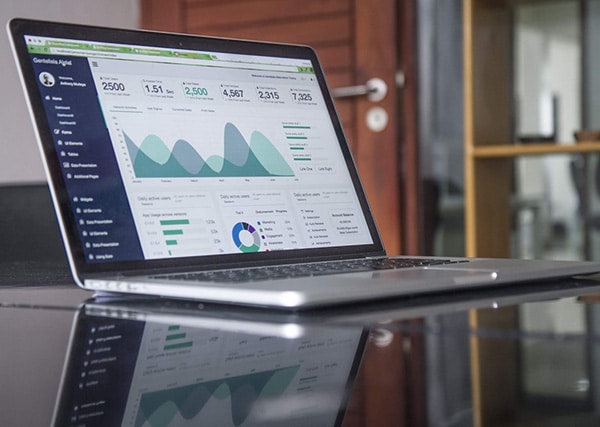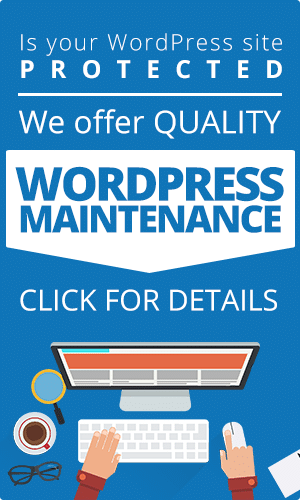WordPress is by far the most popular content management system on earth and, consequently, powers over 30% of the internet.
That’s millions and millions of websites!
If you’re one of the many people using WordPress, you probably love it for its ability to enable non-tech savvy people to build sites that rival the best in the world.
Just because WordPress is easy to use though doesn’t mean that everything with your WordPress site is going to run smoothly. This is particularly true when it comes to “WordPress site slow” problems.
If you’re noticing speed hiccups with your WordPress powered site, it’s important that you fix them ASAP so your search engine ranking isn’t affected.
Below, our team shares with you 8 simple ways to do exactly that.
1. Upgrade Your Web Host
Many times when you’re experiencing a WordPress site slow conundrum, the issue isn’t being caused by WordPress at all. It’s being caused by your web host.
For the uninitiated, web hosts are the online service providers that house your website online. If the servers they’re housing your website on are slow, your site will be too.
If you suspect that your web host is making your site slow, consider upgrading to a more reliable provider.
Be wary when scouring the internet for web host suggestions. Web hosts have aggressive affiliate marketing programs which pay people online to promote their services despite their quality.
Your best line of defense is to sign up with a web host that offers a money back guarantee.
2. Buy a Quality Theme
There are millions of themes you can choose from for your WordPress site. Some are free and others are paid.
We recommend that you invest in a paid theme from a reputable theme creator. Free themes are often littered with adware and even if they aren’t, free themes don’t get regular updates which could cause site slowdowns.
With a solid, paid theme, you can enjoy outstanding aesthetics while simultaneously getting timely, speed-boosting performance updates.
3. Install a Good Caching Plugin
Website caching is a very important component when it comes to your site’s speed. As a matter of fact, we’ve found that a lot of people have considerably improved their site’s speed by solely implementing a caching solution.
With caching, your website’s server serves static elements to your site’s visitors that update on a pre-determined timetable. By doing this, your server can transfer data quickly rather than needing to scan your website for updates every time someone hits refresh.
W3 Total Cache is a popular plugin that has performed well for thousands of WordPress users.
4. Compress Your Images
Nothing can cause WordPress site slow problems quite like non-optimized images. Remember, more people are accessing the web from their mobile phones than ever today.
If you’re forcing them to download 1mb+ images multiple times on a single page, they’re going to be left waiting for things to load all day.
You can compress the images you publish to your website with tools like Photoshop. For an easier solution, download an image compression plugin that will optimize your pictures on the fly.
5. Ditch Gifs
We’re all fans of BuzzFeed’s trademark use of gifs. They’re fun to look at and can be a lot more appealing to your website’s visitors than still images.
Unfortunately, gifs are bandwidth hogs.
Where a still image forces users to just download a single picture to their web browser, gifs make users download hundreds to complete their animation cycle.
To achieve the “gif effect” without requiring users to download massive assets, learn about converting gifs to video in this guide by Google.
6. Lazy Load Media
If you have a lot of media on your website, you can get people on your pages faster by lazy loading your elements.
Lazy loading defers the loading of your media until your website’s visitors scroll to the part of the page where assets exist. That means that your website has a lot less to manage before allowing users to start enjoying with your content.
The plugin “Lazy Load” can help you start lazy loading both picture and video elements on your site right away.
7. Limit The Number of Plugins You Have Active
The volume plugins available are one of the best features of WordPress. After all, plugins allow you to infinitely expand your website functionality at the click of a button!
Just because you can doesn’t mean you should though.
Why?
Because with every plugin you have active, your website slows down a little.
To keep hordes of plugins from bringing your website to a screeching halt, only keep ones that are really providing value to you activated. By limiting your plugin use to a handful of necessary plugins, you can give your WordPress site a serious speed boost.
8. Get a Professional To Assist
Sometimes, no matter how much you play with plugins or yell at your web host, your site’s performance won’t get to where you want it. If you’re overwhelmed by your WordPress site slow problems, we can help.
At Innovative Solutions Group, we provide people like you with a ton of WordPress focused services that can help you improve your site’s performance dramatically.
Theme updates, core updates, spam removal, plugin maintenance and more are all things you can expect from us.
To get the WordPress assist you need today, contact us.
Wrapping Up Our 8 WordPress Site Slow Solutions
From whipping your photos into shape to leveraging caching, there are a number of ways you can deal with your WordPress site slow woes.
To get your WordPress site working its best right now, our recommendation is to let our team at Innovative Solutions Group help.
Reach out to us today to learn all about the value we can bring to you with our affordable web design services!






